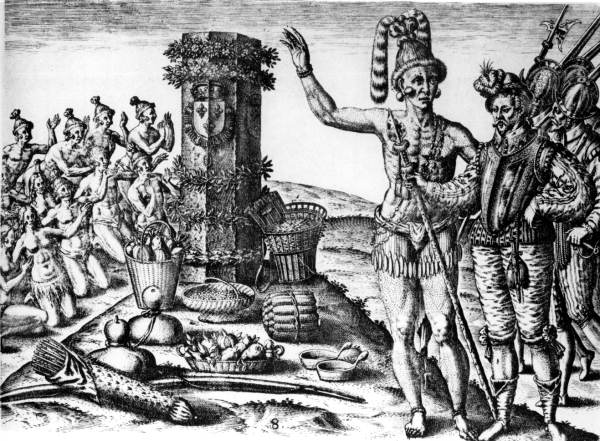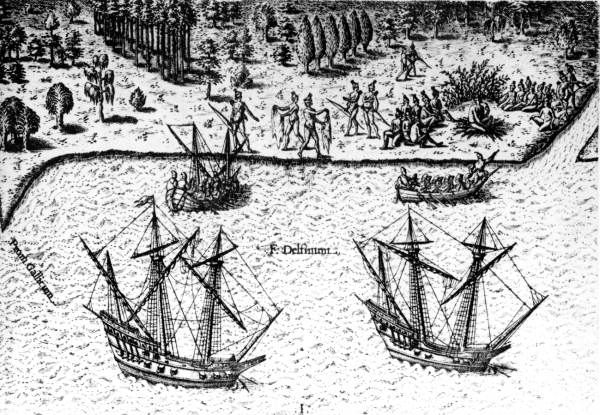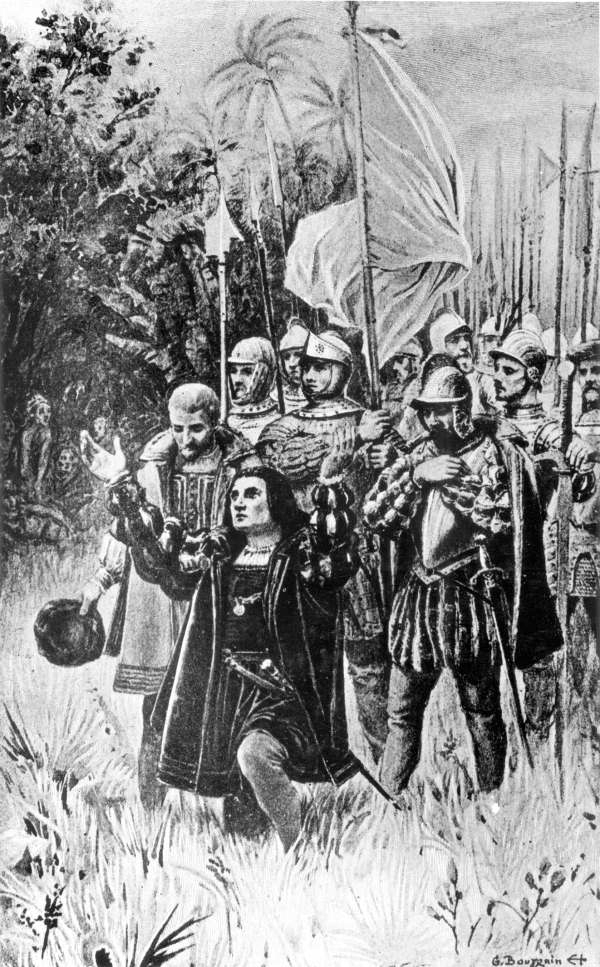On April 30, 1562, an expedition under the command of French explorer Jean Ribault (1520-1565) arrived at the mouth of the St. Johns River north of present-day Jacksonville. Ribault and his Huguenot (Protestant Calvinists) companions hoped to find religious freedom and to start a prosperous colony in the Americas.

Timucua Indians worshipping at the stone pillar erected by Jean Ribault, from Theodor de Bry, Grand Voyages (1591)
After briefly exploring the St. Johns, which Ribault dubbed the River May, and erecting a stone pillar to mark their arrival, the French contingent continued northward along the Atlantic coast. They eventually landed near Royal Sound in what is now South Carolina and constructed a fortification named Charlesfort, in honor of the French monarch King Charles IX.
Ribault returned to Europe from Charlesfort, trying to garner support for further Protestant colonization in La Florida. He hoped to gain the patronage of Queen Elizabeth I of England, but was confined to the Tower of London under suspicion of espionage instead.
The French abandoned Charlesfort about one year after its founding, but returned to La Florida two years later in 1564 and established the short-lived settlement of Fort Caroline. An attack on Fort Caroline by the Spanish in September 1565 ended France’s efforts to colonize Florida.

 Listen: The Folk Program
Listen: The Folk Program
